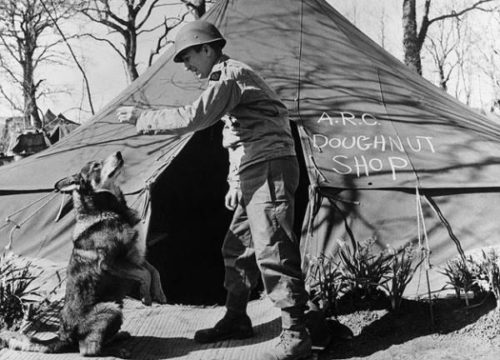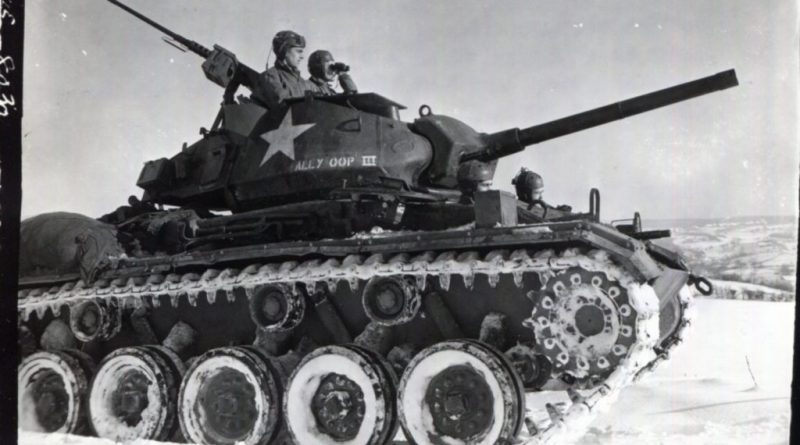July 10 in U.S. military history
1942: A PBY Catalina crew spots an intact Japanese A6M Zero fighter that crash-landed on the Alaskan island of Akutan. The fighter is salvaged and shipped to the United States, where test pilots will use the captured warplane to identify tactics that negate the formidable Zero’s advantages. The newly developed F6F Hellcat is modified to take full advantage of the Zero’s weaknesses discovered during tests, and Hellcat aviators will enjoy an impressive 13:1 kill ratio against Zeroes in the Pacific War.
1943: Just after midnight, paratroopers from the 82d Airborne Division perform their first combat jump behind enemy lines on the island of Sicily. That morning, over 100,000 American, British, and Canadian troops will hit on the beach in one of the biggest airborne and amphibious invasions of the war. The Allied force captures the island after six weeks of fighting, but is unable to prevent the withdrawal of many of the Axis forces.
“Chips,” a German Shepherd military police dog serving in Sicily with Company I, 30th Infantry Regiment, attacks a hidden German pillbox, forcing four enemy soldiers to surrender. Chips is wounded in the attack, but the canine will be awarded the Silver Star and Purple Heart by the 3rd Infantry Division’s commander, Maj. Gen. Lucian Truscott.
Earlier that morning, as the American fleet prepares for the Sicily invasion, Ensign John H. Parle spots a small fire aboard a landing ship that was loaded with ammunition and explosives. Fearing that the detonation of the craft could compromise the invasion, Parle rushes through the smoke towards the flames. Unable to put out the fire pot that threatened the dangerous cargo, he manhandles it overboard. Parle perishes from smoke inhalation a week later and is awarded the Medal of Honor for his sacrifice.

1950: While the Eighth Army establishes a defensive perimeter at Pusan, the hastily deployed and undermanned soldiers of the 21st Infantry Regiment fight a series of delaying actions against two North Korean divisions. North Korean forces clash with soldiers of the U.S. 24th Infantry Division in the Battle of Chochiwon. Two days of airstrikes on the approaching armored column of enemy vehicles and infantry had seriously weakened the attackers, but the outnumbered American soldiers attempting to hold Chochiwon and Chonuiare with antiquated equipment are quickly routed. The battle marks the first engagement of American and North Korean tanks, and the light M24 Chaffee tank (featured image) proves no match for the heavier armor and guns of the Soviet-built T-34. The Americans mount a counterattack, and successfully delay the communist force for three days, resorting to hand-to-hand fighting before having to withdraw.
